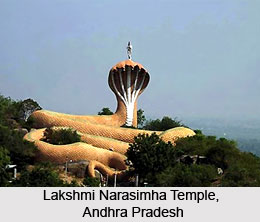 Chagi dynasty belonged to `Suryavanshi` sect and ruled the regions of Vijyavativishayas which is the present-day Krishna District and Natavadi which constitutes the Nellore District. Vinukonda or Guntur District, Gudinetta or Prakasam District and Vijayananda served as their capitals. The Gajapatis, Cholas and the Kakatiyas controlled the Chagi Dynasty.
Chagi dynasty belonged to `Suryavanshi` sect and ruled the regions of Vijyavativishayas which is the present-day Krishna District and Natavadi which constitutes the Nellore District. Vinukonda or Guntur District, Gudinetta or Prakasam District and Vijayananda served as their capitals. The Gajapatis, Cholas and the Kakatiyas controlled the Chagi Dynasty.
The kingdom ruled by the Chagis was considerably large and experienced significant political annexations as compared to several other royal dynasties based in Vengi during that time. Diplomatic marriage alliances were common between the Chagis, Telugu Cholas, Haihayas of Palnadu, Kondupadumatis and the Kakatiyas. The second son of Chagi Buddaraju who was the then ruler of the area of Natavadi, wedded the sister of Ganapati Deva, who was the Kakatiya king.
History of Chagi Dynasty
There exists a legendary account of the origin of the Chagi Dynasty. The very first king of the Chagi dynasty was Chagi Venkana who was related to the `Suryavanshi` sect and was said to have been the earth`s protector and the lord of the west or `Paschimadhisvara`. The other divisions of the Chagi dynasty included Telugu Cholas, Perichhedis and Vatsavayi. As per an ancient inscription inside a temple located in Krishna district, the Chagi dynasty is an extension of the `Bahujakula` or `Kshatriya`. In the Sanskrit language, `Kula` implies clan and `Bahuja` means arms.
Rulers of Chagi Dynasty
Muppa I was known to be the first member who belonged to the Chagi Dynasty and he was also referred to as `Arya`. He had worked for Rajendra Choda Kulothunga who had reigned from 1010 to 1118 A.D. Consequently, he received generous rewards from the king in the form of royal insignias and tracts of land. This formed the foundations of the Chagi kingdom.
| Tyagi Dora (1118-11160 A.D) |
| Pota 1 (1161-1190 A.D.) |
| Dora 2 (1190-1199 A.D.) |
| Pota 2 or Narashimha Vardhana Tyagipota (1199-1230 A.D.) |
| Ganapaya and Dora 3 (1230-1257 A.D.) |
| Manma Pota and Manma Ganpaya (1257-1268 A.D.) |
| Manma Chagiraju (1268-1292 A.D.) |
| Rudrayachagi (1292-1305 A.D.) |



















